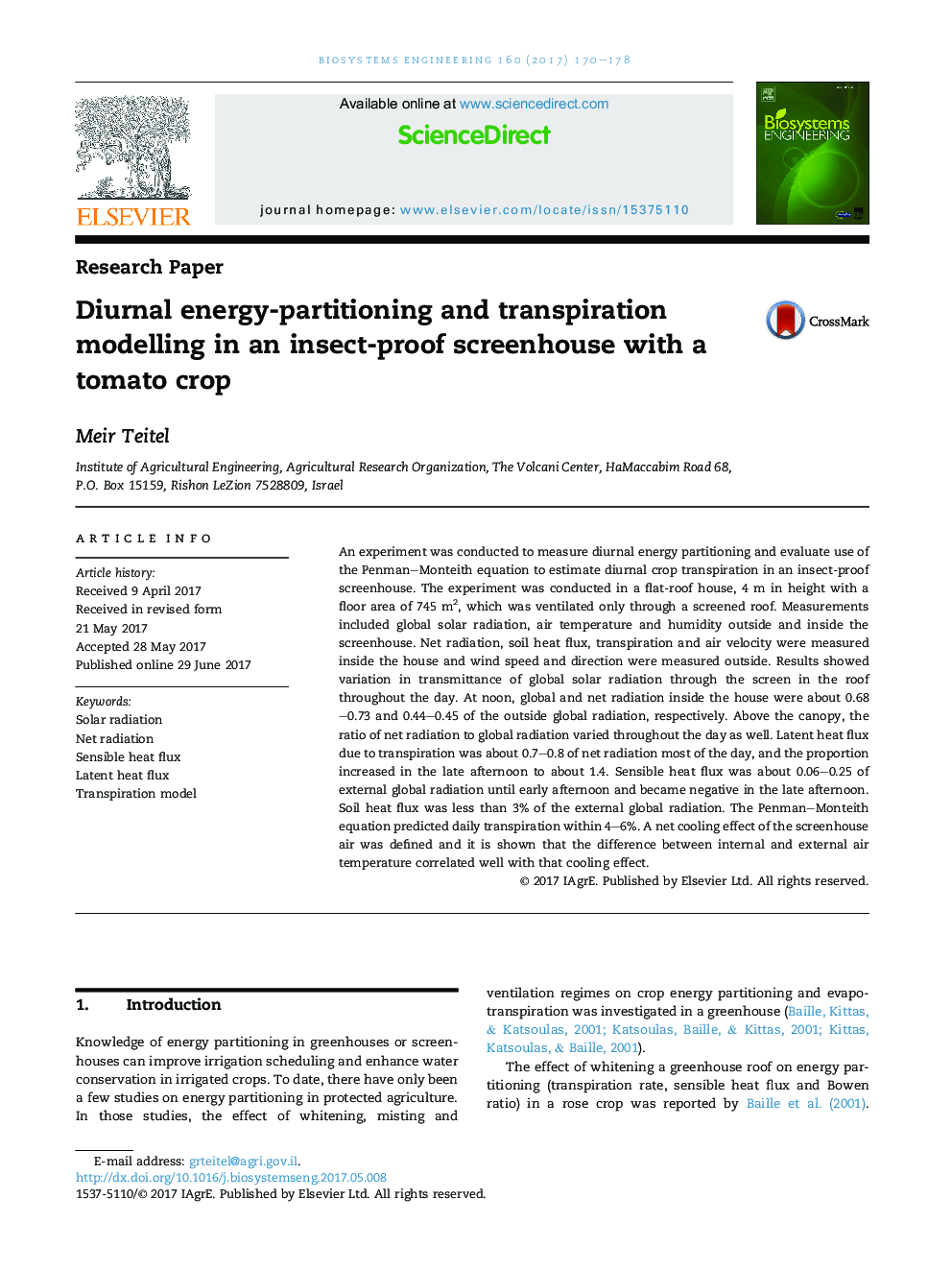| Article ID | Journal | Published Year | Pages | File Type |
|---|---|---|---|---|
| 5471822 | Biosystems Engineering | 2017 | 9 Pages |
Abstract
An experiment was conducted to measure diurnal energy partitioning and evaluate use of the Penman-Monteith equation to estimate diurnal crop transpiration in an insect-proof screenhouse. The experiment was conducted in a flat-roof house, 4Â m in height with a floor area of 745Â m2, which was ventilated only through a screened roof. Measurements included global solar radiation, air temperature and humidity outside and inside the screenhouse. Net radiation, soil heat flux, transpiration and air velocity were measured inside the house and wind speed and direction were measured outside. Results showed variation in transmittance of global solar radiation through the screen in the roof throughout the day. At noon, global and net radiation inside the house were about 0.68-0.73 and 0.44-0.45 of the outside global radiation, respectively. Above the canopy, the ratio of net radiation to global radiation varied throughout the day as well. Latent heat flux due to transpiration was about 0.7-0.8 of net radiation most of the day, and the proportion increased in the late afternoon to about 1.4. Sensible heat flux was about 0.06-0.25 of external global radiation until early afternoon and became negative in the late afternoon. Soil heat flux was less than 3% of the external global radiation. The Penman-Monteith equation predicted daily transpiration within 4-6%. A net cooling effect of the screenhouse air was defined and it is shown that the difference between internal and external air temperature correlated well with that cooling effect.
Related Topics
Physical Sciences and Engineering
Engineering
Control and Systems Engineering
Authors
Meir Teitel,
